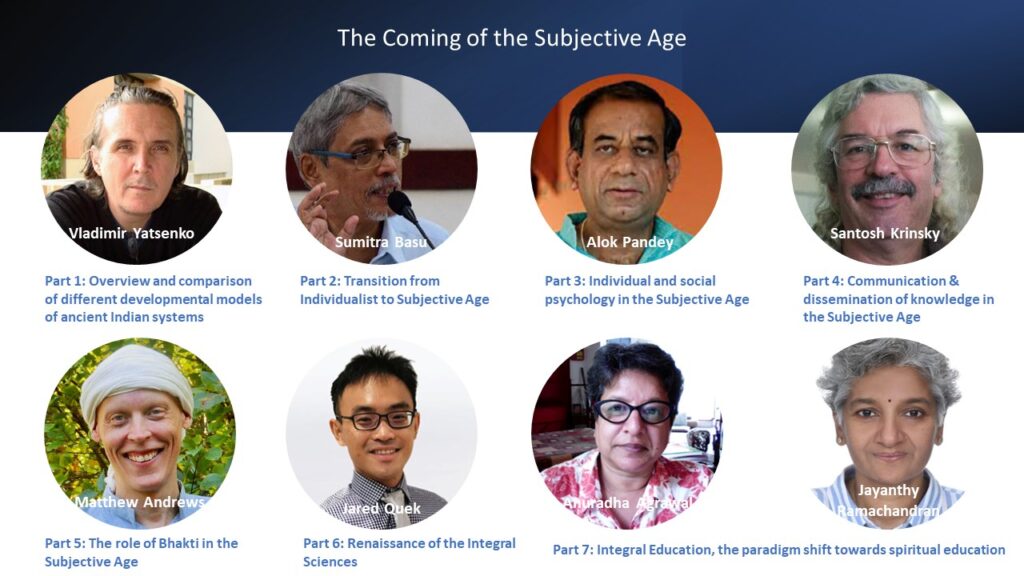The aim of this 8-week series is to present the evolutionary model of social development of the coming of the Subjective Age, which is a path or a transition towards the Spiritual Age of Humanity where the subjective truths of the individuals and nations are recognized and valued by all.

Lesson 1 Dr. Vladimir Yatsenko
An Introduction and comparison of different developmental models of Ancient Indian System of 4 Yugas, Structures of Consciousness of the Gebser’s social philosophy with Sri Aurobindo’s Stages of Social Development in the Human Cycle, and even mentioning other economic and political systems of Marxism etc.
Lesson 2 Dr. Soumitra Basu
The Transition from Individualist to Subjective Age, its major characteristics and dangers, true and false subjectivism.
Lesson 3 Dr. Alok Pandey
On Individual and Social Psychology in the Subjective Age. Change of behavior, perception, values, spirituality and religion, Nation Souls and political systems etc.
Lesson 4 Santosh Krensky
Communication and Dissemination of Knowledge in the Subjective Age. New forms of knowledge: Internet, Google, Wikipedia, Blogs, Courses online etc.
Lesson 5 Matthew Andrews
The Role of Bhakti in the Subjective Age. The refinement of bhakti over time as a science that uses the emotions the same way jñana yoga uses the mind or hatha yoga uses the body, all in the service of awakening.
Lesson 6: Jared Quek
Renaissance of the Integral Sciences. The importance of the development of the inner sciences for the subjective age.
Lesson 7: Anuradha Agrawal and Dr. Jayanthy Ramachandra
Integral Education in the Subjective Age: The Paradigm Shift towards Spiritual Education.
Lesson 8 Vladimir Yatsenko and Radhe
New Elements in Education in the Subjective Age: The development of Faculties and Qualities of the individual being.
Course Content
About Instructor




Responses